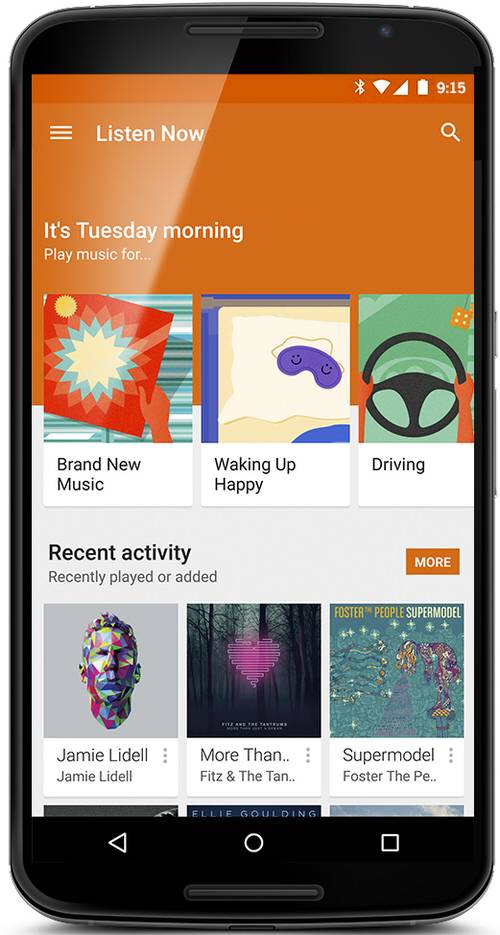
Everything is better when it’s handcrafted—apparently even music. Google is unleashing digital DJs and playlists based on moods and circumstances on its Google Play Music app as part of its integration of Songza, which Google acquired earlier this year.
On Tuesday, the company announced that Google Play Music subscribers can now choose music playlists keyed to a particular time of day, certain feelings, or a specific activity. These “radio stations” are put together individually by Google’s “team of music experts”—a group that apparently includes ethnomusicologists as well as DJs, musicians and music critics, because everything is better when ethnomusicologists are involved.
If that approach sounds familiar, that might be Beats Music, the streaming service created by music industry legends Dr. Dre and Jimmy Iovine. (Apple acquired that service and the related headphone maker Beats Electronics for $3 billion in May.) When Beats Music launched back in January, my then-colleague Taylor Hatmaker thought its features blew away algorithm-based rivals like Pandora and Spotify.
See also: Beats Music Review: Finally, A Digital DJ That Knows Its Stuff

Google’s now betting on the human touch, too. When subscribers boot up the Google Play Music app, they’ll be prompted to tell Google a mood or a moment, which could be something like “at the gym,” or “summer BBQ.” Each station can be downloaded for offline listening. The company also revamped the “Listen Now” page, which includes suggestions for stations based on an individual’s music history. Previously, Google would let people create stations from a song or playlist, similar to other services.
The hand-selected, mood-based playlists will be available for subscribers in the U.S. and Canada today. The “Listen Now” page is available everywhere on Android, iOS, and the Web.
Google Play Music may face additional hurdles if it’s looking to keep up with its rival. Apple is reportedly planning to relaunch Beats Music at just $5 per month, about half of the $9.99 Google Play Music costs (roughly the industry standard).
Lead photo by Michael Dorausch; other images courtesy of Google

















